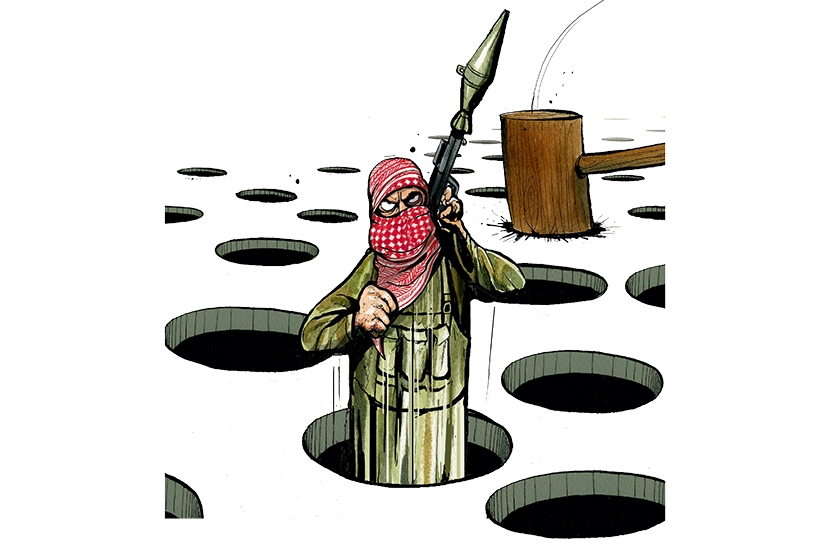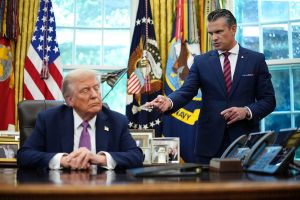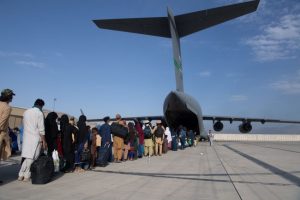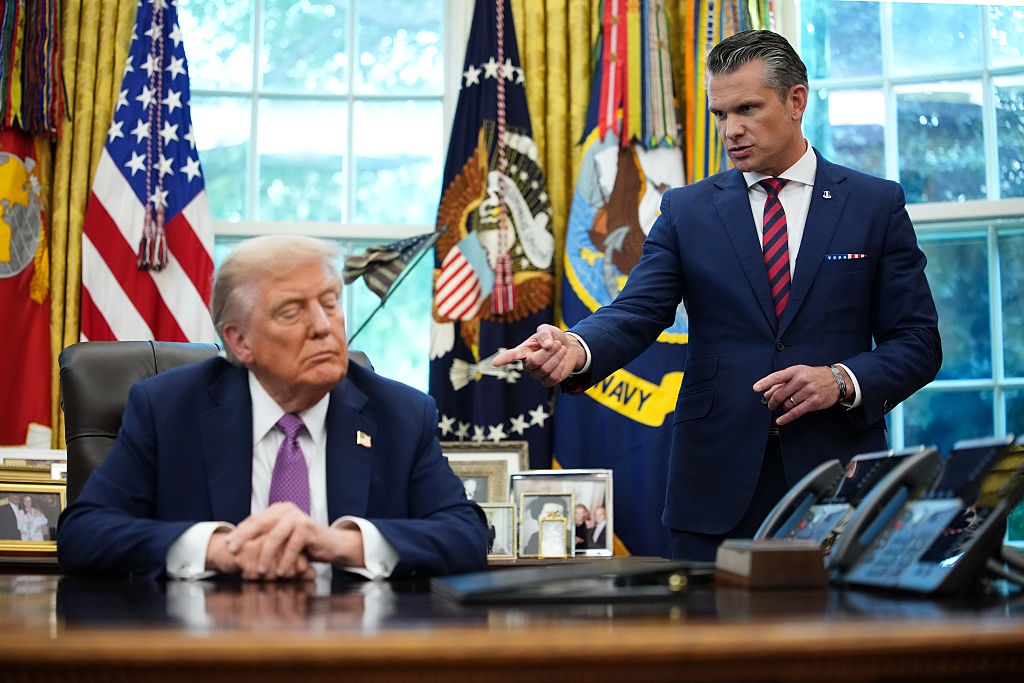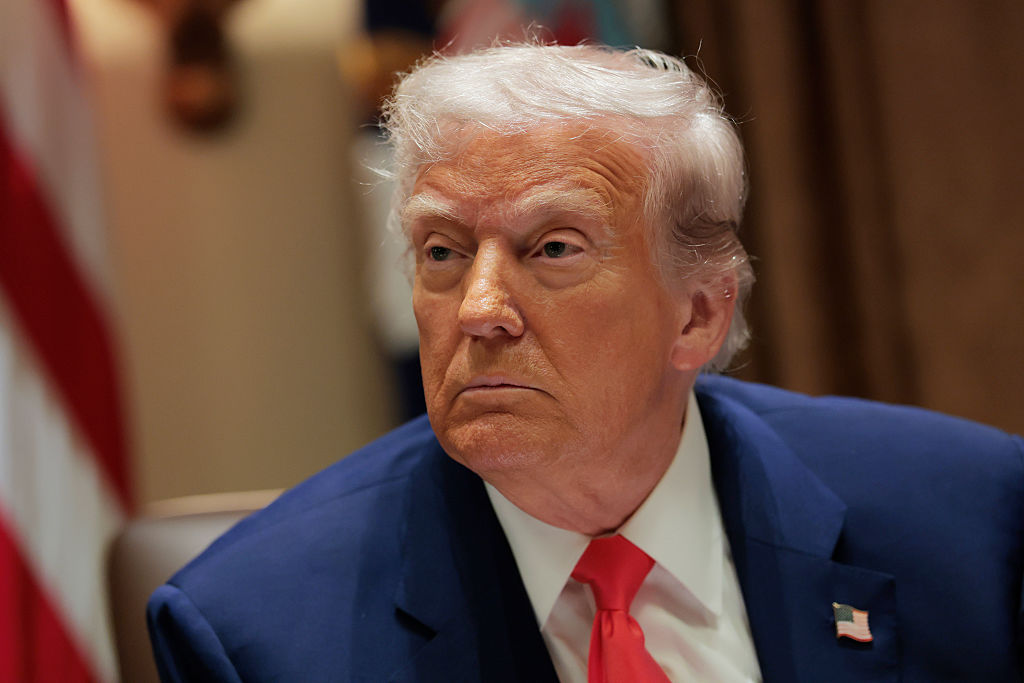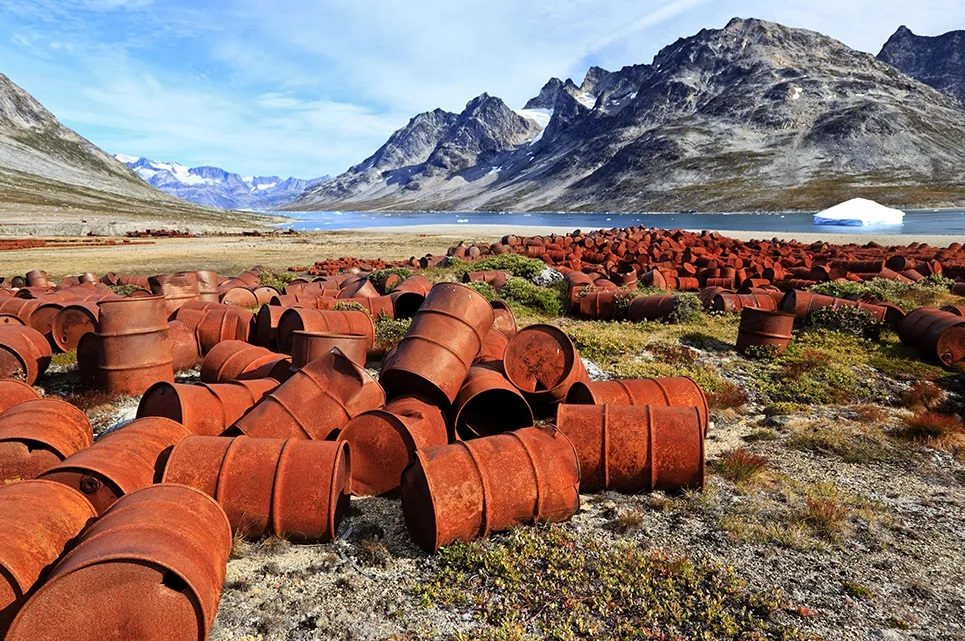There’s an apocryphal story, told and retold by journalists many times over the course of America’s longest war. A Taliban prisoner is sitting, relaxed, across the table from an American interrogator: ‘You may have all the watches,’ the prisoner says, ‘but we have all the time.’ Now, the Taliban’s patience is finally paying off. President Joe Biden has promised that the last US soldier will be out of Afghanistan by the heavily freighted date of September 11. In fact, all the troops may be back on American soil by the even more symbolic date of July 4. Other Nato soldiers — including a small British training mission — are hastily lowering their flags and scuttling out. They leave in their wake an unfolding disaster.
After 19 years, the Islamic Emirate — as the Taliban call themselves — are not waiting any longer. There is fighting across Afghanistan: not just in the south where the Taliban are traditionally strong, but in 28 out of 34 provinces. The Americans are already off the battlefield and only the ineffective Afghan security forces are left to stop the Taliban, who are surging forward everywhere. The United States lost some 2,300 people in almost two decades of the Afghan war. The Afghan army loses that many every few months. The government tries to stop the true, terrible casualty figures from getting out but the news agencies cobble together estimates. In the past week, some 200 Afghan police and troops were killed; the week before, 150 died in a single day.
The government and its supporters were dismayed by the death last week of a famous and charismatic special forces commander, Colonel Sohrab Azimi, who was killed along with all his men. They were overrun by the Taliban while defending an isolated base in the far north of the country. According to one account, it took less than an hour. The Americans were no longer around to save them with aerial bombing; the Afghan government proved incapable of sending reinforcements, leaving them to their fate. That was a profound shock: it’s usually the special forces who come to the rescue of other beleaguered troops.
In some places, the Taliban are carrying out what one observer told me was a ‘burned earth policy’: destroying infrastructure, using car bombs and suicide bombers, killing any high-ranking government loyalists they capture. The head of the national intelligence agency in one district of Takhar province in the north was executed last week, although, interestingly, more than 70 soldiers taken prisoner alongside him were allowed to leave. The Taliban have wisely decided to treat ordinary troops and police officers well if they give up without a fight. Many of the security forces have drawn the appropriate lesson and there are reports of whole units surrendering to the Taliban, passively handing over weapons and equipment.
Twitter is full of triumphant Taliban videos showing this. In one, Taliban fighters swarm around a column of abandoned armored vehicles. ‘Thanks be to God,’ says one, grinning as he hops into a Humvee and gets behind the wheel. The Humvee was made in Indiana. He might also have said: ‘Thanks be to the American taxpayer.’ In another Twitter video, men in army fatigues line up to silently add to a great pile of rifles, helmets, webbing and other equipment, before walking away, heads bowed. This is an echo of what happened in Iraq when Isis terrified the Iraqi army into literally throwing down their arms. The Afghan troops seem relieved to give themselves up to the Taliban, who feed them and give them money so they can go home.
That last fact gives a clue as to why an army of 260,000, which has cost the US taxpayer $89 billion to train and equip, is so useless. Ten years ago, I was at a sprawling base in southern Afghanistan shared by US forces and the Afghan army. I asked the American troops hosting me if I could visit the Afghans. That was not a good idea, they said: they wouldn’t even risk going near the Afghan tents. This, I was told, was because the Afghan soldiers were stoned on hash or opium half the time. That was certainly true — but when I did meet some of them, I found they were furious and desperate, because they hadn’t been paid in months. This was Afghanistan’s legendary corruption at work. Nothing has changed.
The Afghan security forces have been deeply demoralized for a long time. They were made more miserable by the US withdrawal deal with the Taliban, negotiated by President Donald Trump and implemented by President Biden. Many are losing the will to fight altogether as the Taliban advance. The Afghan government itself is showing signs of panic. At the weekend, President Ashraf Ghani hastily sacked both his interior and defense ministers and the army chief of staff. Troops have been seen digging in on the outskirts of Kabul. These are the special forces — perhaps the government feels it cannot rely on its regular troops.
But while a complete collapse is possible, it is not inevitable. Afghanistan’s future might be an unending civil war, the government in the cities, the Taliban in the countryside. Even al Qaeda is back, apparently once again under Taliban protection. As the Taliban spokesman, Zabiullah Mujahid, told me earlier this year: ‘The Americans have to accept that they have lost.’
Colonel Stuart Tootal, who led 3 Para in Helmand in 2006, believes the Afghan war could have been won. Afghanistan ‘would be a very different place now’ if troops and money had been poured into the country in 2002, ‘the critical year’, instead of ending up in Iraq. Seventy-six of his soldiers were combat casualties, 15 of them killed in action, among the 456 British dead in Afghanistan. He told me the politicians had ‘ignored’ intelligence that British troops in Helmand should expect serious opposition from the Taliban. The UK defense secretary at the time, John Reid, famously said he would be ‘perfectly happy’ for the British to leave Helmand without firing a shot. ‘Well, we [in 3 Para] fired half a million rounds of ammunition.’
The ‘raw military advice’ was that 10,000 troops were needed in Helmand, he said, but the government sent only 3,500. Force levels were just ‘about right’ by the time the US sent 20,000 Marines to Helmand in 2009, but then as soon as things started to stabilize, politicians in America and Britain began cutting back. ‘We were withdrawn too soon,’ he said, a mistake he thinks is being repeated now. ‘That’s why you’re seeing a deterioration. No one should be surprised by that.’
Sir Sherard Cowper-Coles, who was Britain’s ambassador in Kabul, blames the military for a lot of what went wrong in Afghanistan — and the politicians for failing to stand up to them, frightened of being accused of letting down Our Boys. ‘The armies have enjoyed it. They’ve got medals and homecoming parades and battle experience. The central lesson is civilians need to keep militaries under control. The politicians knew privately that the happy talk from the military was wrong, but they didn’t have the guts to stand up to the generals.’ Colonel Tootal bristles at that: ‘Anyone who thinks soldiers on the front line were hunting glory has never been part of a repatriation party carrying a body bag off the bloody back of a Chinook.’
Sir Sherard wrote a very good book about Afghanistan, Cables from Kabul. What he meant was that western military commanders would arrive every six or 12 months, plan a big offensive — that’s what soldiers do — and then leave: tactics without strategy (which is just the ‘noise before defeat’, as Sun Tzu said). He said the British army wanted to ‘erase the shame of Basra’, where they had handed the Iraqi city to Shiite militias in 2008. The army’s top brass worried that if they didn’t use the battle groups coming out of Iraq, they would lose them. The Treasury was as much the enemy as the Taliban. ‘It was all about justifying the size of the army.’ The politicians went along, he said, supported by advisers who ‘lied to advance their careers’.
Sir Sherard was particularly furious at President Barack Obama and his aides for ordering a troop surge they knew wouldn’t work, for ‘entirely cynical’ domestic reasons. Despite being in Afghanistan for 20 years, he says the US never had a political strategy, a plan to slowly, painstakingly negotiate a settlement that would include the Taliban. ‘Afghanistan is not fundamentally a military problem, it’s a political problem. We didn’t have a political strategy… We tried to solve it by force and wishful thinking.’
This is another way of saying that the US never had the Taliban’s strategic patience. If the Taliban are on the point of victory, it is because they have simply outlasted the United States.
This article was originally published in The Spectator’s UK magazine. Subscribe to the World edition here.



